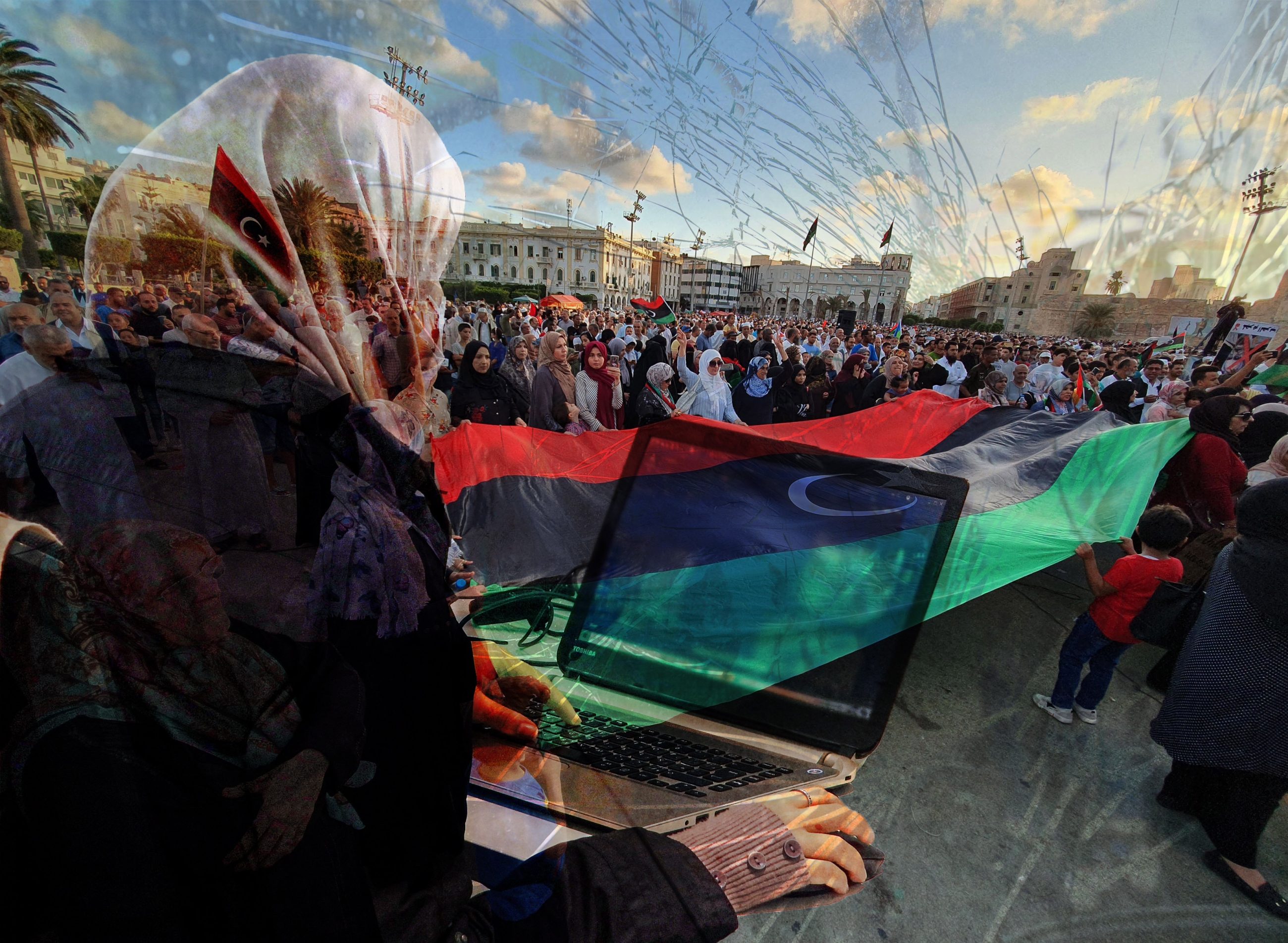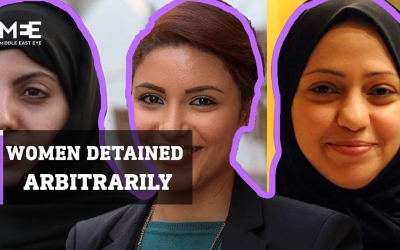Libya: Calls for urgent action to tackle online violence against women

A new report details how online abuse experienced by Libyan women has grown steadily in recent years, often escalating to physical attacks, with no laws in place to combat the problem.
The report, published by Lawyers for Justice in Libya (LFJL), an NGO that seeks to defend and promote human rights in the country, calls on Libyan authorities to immediately acknowledge the widespread pattern of online violence against women and enact legislation to address the issue.
According to the report, online abuse of women, including harassment, threats, cyberstalking and exposing personal information, started following the 2011 uprising and has been on the rise since, due to a lack of regulations to protect women.
'The instances of online abuse can and do undermine the transformative potential of the Internet, digital spaces, and social media – especially for women'
- Dr Olga Jurasz, law lecturer
Such incidents, according to research fellow and senior law lecturer Dr Olga Jurasz, have deterred many women from their activism, particularly following the 2011 uprising where social media was a key tool allowing women to voice their opinions.
“Online activism became a form of empowerment for women, not only offering an opportunity to overcome barriers to active participation in public and political life but also to challenge existing gender stereotypes and patriarchal norms," Jurasz told Middle East Eye.
"However, the instances of online abuse can and do undermine the transformative potential of the internet, digital spaces, and social media – especially for women,” she added, explaining that accountability for such acts is largely lacking.
Abuse as a deterrent
According to Jurasz, the rise in online abuse against women has had some major consequences in terms of political representation.
“Online abuse can, and often is a deterrent factor for women’s involvement in activism and campaigning, but also going into politics. This has severe implications for women’s representation in the political dialogue and for ensuring equality of participation in public and political life,” she said.
Of the people surveyed by the organisation, 96 percent said that online violence against women was a serious problem and 60 percent said they believed the government or its militias were involved in the perpetration of the issue.
A number of victims surveyed by LFJL have reported deep psychological impacts as a result of online harassment, and some have said that it often escalates into physical attacks.
“The impact is significant, as many women prefer to withdraw from public space due to the attempts to undermine, defame and slander them, not to mention death threats. Its effect is also clear in the electoral process, as women now avoid the process of participating in elections,” Abeir Imneina, a political activist told the organisation.
Another survey respondent said that women in Libya are often seen as second-class citizens, and the lack of protection for them means that the issue has been exacerbated in recent years.
“Libyan women face abuse every day on the streets and online. This is because many people still believe that they are the inferior gender....domestic violence isn’t even a crime in Libya, so there are no laws protecting women from cyberbullying or bullying to date,” the respondent said.
Discriminatory laws
The report also calls on the UN to periodically monitor Libya’s adherence to treaties and obligations, as well as for the Libyan state to repeal laws that allow for discrimination against women in the country.
“Since 2011, several draft laws have been proposed to tackle violence against women, but all of those seen by LFJL fall short of international law and standards,” the statement read.
Human rights defenders, journalists and politicians have been some of those most impacted by the rise in online abuse.
Last year, a prominent political activist and lawyer, Hanan al-Barassi, was shot and killed in the street in Benghazi by armed men. The shooting came after al-Barassi took to Facebook to post a video detailing corruption in the Libyan Arab Armed Forces and for criticising the promotion of eastern commander Khalifa Haftar’s sons to senior roles in the city.
Other women who have been impacted include human rights activist Salwa Bugaighis who was shot dead by unknown assailants in her home in Benghazi and blogger and activist Mariam al-Tayeb who was attacked and briefly abducted in 2018.
Hanan Elmgawab, a Libyan journalist, told LFJL that increasing levels of online harassment targeting her left her deflated and unable to continue on with her work at times.
“I have been, and continue to be, subjected to online violence for being a woman who discusses politics and is an activist in the field of human rights. Because of online violence and direct incitement through social media pages, I had to leave Libya and my future in Libya has been destroyed.
"Social media has declared me an infidel for no real reason other than being a woman who dared to express her opinion and who rejected extremism and the proliferation of arms,” she added.
According to Human Rights Watch, Libyan law does not specifically criminalise domestic violence and personal status laws discriminate against women in relation to marriage, divorce and inheritance.
The rights group also stated that there have been numerous attacks on freedom of speech and expression over the years, such as lethal force being used by armed groups against peaceful anti-corruption demonstrators.
Middle East Eye propose une couverture et une analyse indépendantes et incomparables du Moyen-Orient, de l’Afrique du Nord et d’autres régions du monde. Pour en savoir plus sur la reprise de ce contenu et les frais qui s’appliquent, veuillez remplir ce formulaire [en anglais]. Pour en savoir plus sur MEE, cliquez ici [en anglais].





